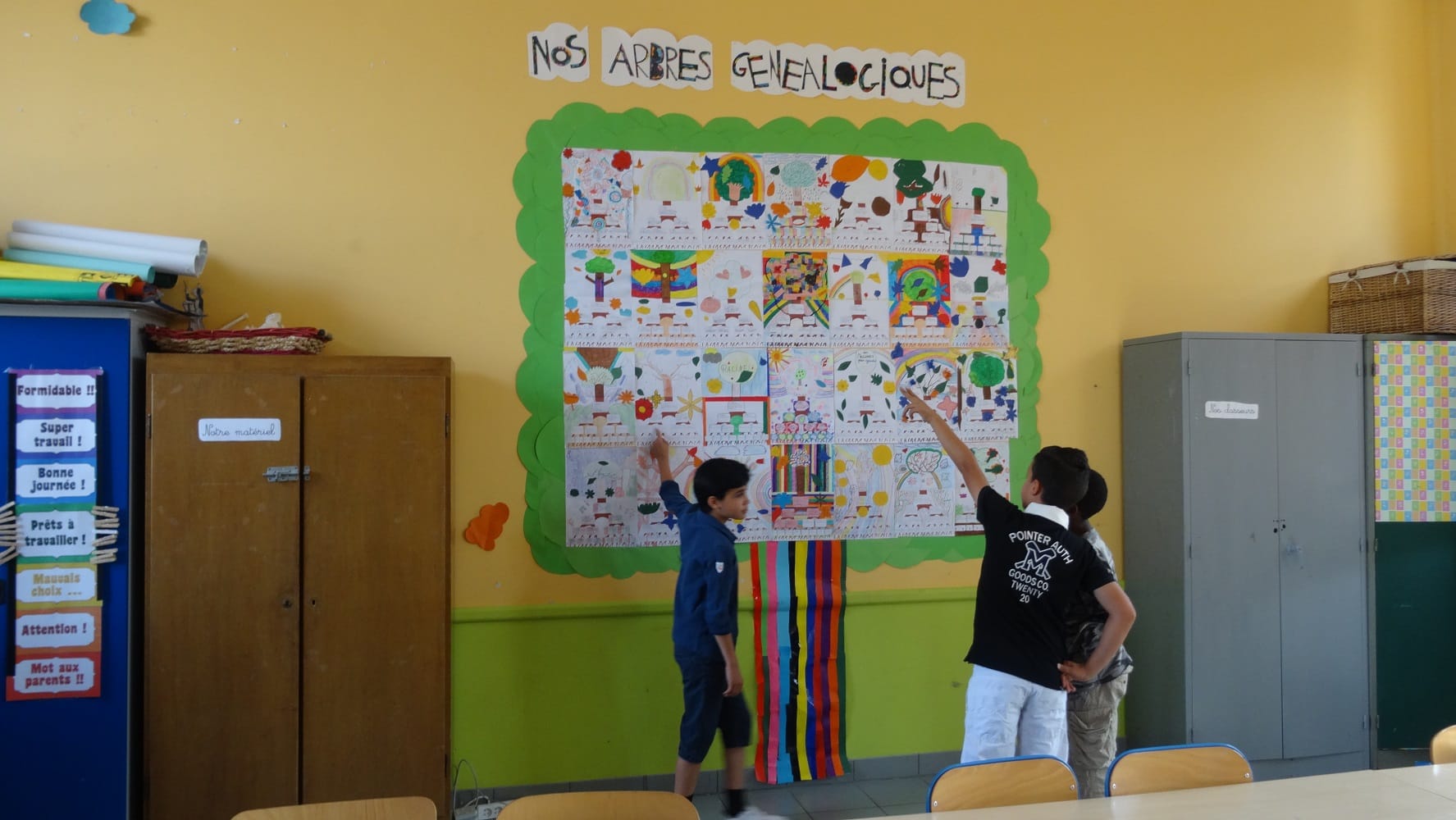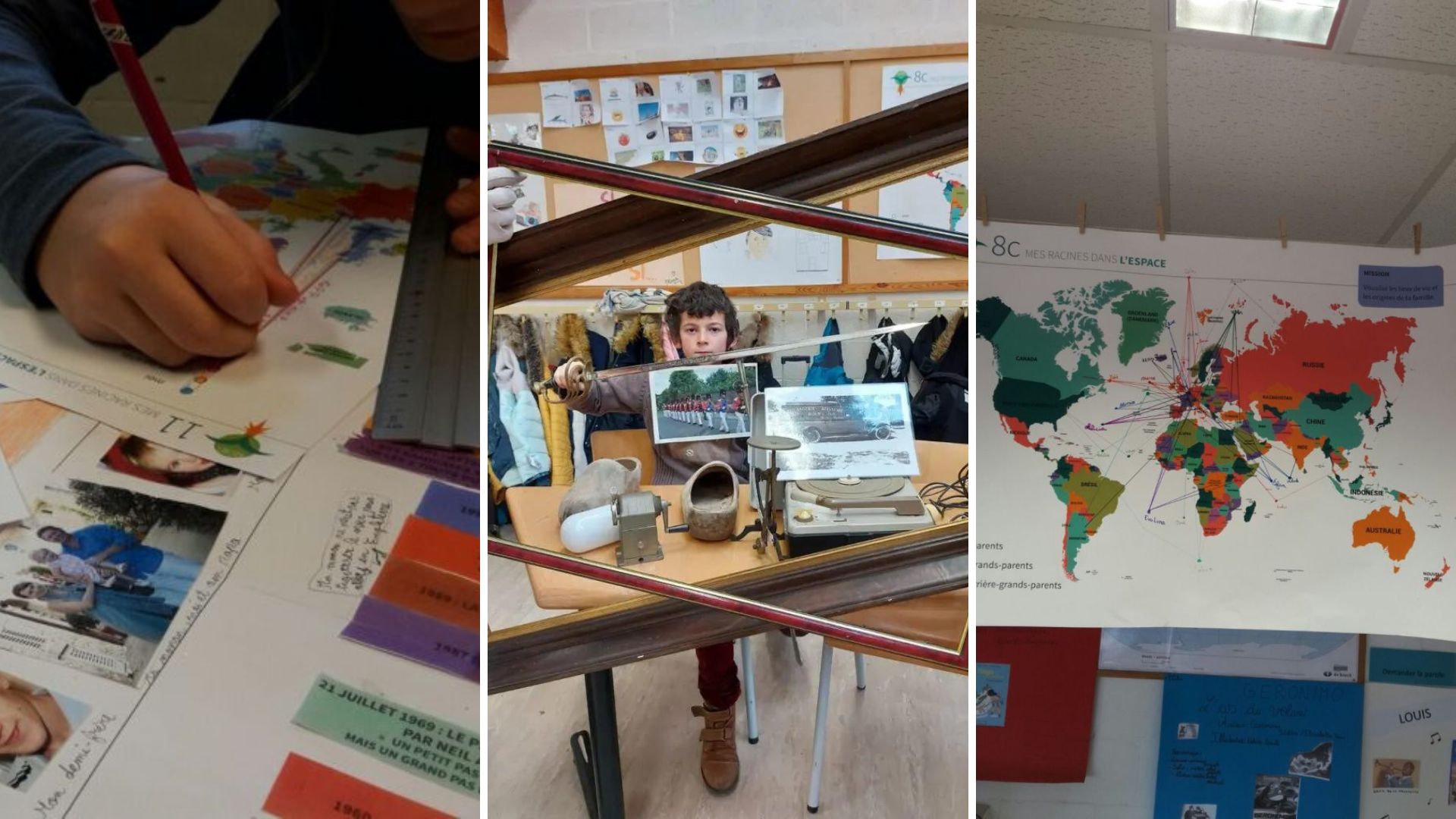From pedalo championships and medical miracles to analysing ancestry, here's this week's round-up of positive news stories from Belgium to kickstart your weekend.
Today's positive pick
Despite being known as a multicultural melting pot, racism and xenophobia still affect Brussels. A school programme now aims to tackle the problem, quite literally, at the root.
Des Racines Pour Grandir ('Growing Roots') is a non-profit organisation which has introduced a programme across French-speaking Belgian schools to reconnect young people with their family histories and help them better understand their peers.
"For me, family history and the diversity of family models in today's society raise real questions to which we need to provide appropriate answers for young people. When family ties are cut and people are estranged from their family histories, they lose the reference points that really build a person", Racines founder, Vinciane Hanquet, told The Brussels Times.
The project aims to help children between the ages of 10 and 15 rediscover their personal history, encouraging them to meet with previous generations and trace geographical origins.

'Our Family Trees'. Credit: Des Racines Pour Grandir
Vinciane (now retired) was a teacher for 48 years and started discussing ancestry with her pupils 15 years ago. But her project really took off after the 2016 Brussels terror attacks, when the Molenbeek municipality called on local schools to incorporate the programme into their teaching as a prevention tool.
It has since grown significantly, expanding even to Canada, Switzerland, France and Morocco, with 80 classes and 2,000 pupils participating every year in Belgium alone.
16 volunteers from Racines provide 1.5 hour sessions to the students twice a month over the course of the academic year, employing an interdisciplinary and "universal" approach.
The pupils build 'trees of life' – inclusive family trees which represent modern society's diverse family models – and label them with roots and branches. The idea is to nurture all these 'trees of life' over several months with interviews and learning about the history, values, traditions and cultural heritage of each other's families, Hanquet explains.

Credit: Des Racines Pour Grandir / The Brussels Times
The final step of the project sees this tree inverted, so that the branches become the roots. This demonstrates how the children are inextricably linked to their roots and how this "pushes them to grow and decide who they want to become," Hanquet says.
Susie, a primary school student who took part in the project this year in her school in Evere explained: "it helps you to understand your family better so that when you're an adult you won't be afraid of people you don't know." Another student, Marco, enthused "we've never had a homework task quite like it!"
In June 2022, Minister of Education for the Wallonia-Brussels Federation, Caroline Désir, attended the final Racines session at École 2 Emeraude in Molenbeek. She commended the "powerful" project, describing Racines as "an opportunity to highlight our diversity and what it brings to our societies".
A 'life-long gift'
Despite the challenges in charting the long-term impact on children, Hanquet insists that the programme has a profound, multifaceted impact on pupils' lives, both in bridging family connections and in building relationships at schools with teachers and other students alike.
It provides them with a solid grounding and it is really "a life-long gift that we can give to young people." Hanquet highlights the project's power to combat racial prejudice: "Racism will always exist, including in Brussels, but a project like this can really help break down preconceptions."
Participating children are at the end of primary and beginning of secondary school – a critical, impressionable age. Hanquet stressed the need to have these discussions with children when they are young and that students who go through the programme leave it very much "ready to challenge their prejudices".
Racines is "more than a project," the founder concludes. "It's an experience of sharing in a supportive environment over a long period of time to enable genuine integration."
For more information on Des Racines Pour Grandir or to participate in the programme, see here.
Other stories from this week to make you smile:
1. Belgian Pedalo World Championships returns to Brussels this weekend
Initially a fun idea between friends, this event has grown to over 3,000 spectators last year. This year, 40 teams of eight to ten riders will compete in a four-hour endurance race around the Bois de la Cambre lake. Read more here.
2. Five wolf cubs spotted in Flanders
Five cubs have been spotted this year in a wolf pack in the province of Limburg, said the Flemish Research Institute for Nature and Forests (INBO). The institute believes that the wolf Noëlla may have given birth to them at the end of April. Read more here.
3. World first: Belgian hospitals treated abnormality of baby in the womb
Belgian hospitals have made history by using a drug to treat a baby with a severe abnormality while in the womb. Six years on, the child is living a normal life. UCLouvain university has described the procedure as a "medical tour de force". Read more here.
4. Belgium's climate transition will create thousands of jobs, a government study shows
Belgium is the country with the highest potential for net job creation from the green transition in Europe, with new skills needed in all sectors and between 20,000 and 60,000 new jobs created in the country due to the climate transition. Read more here.

